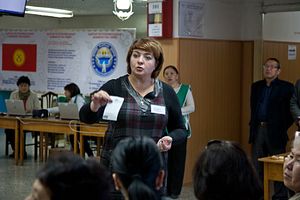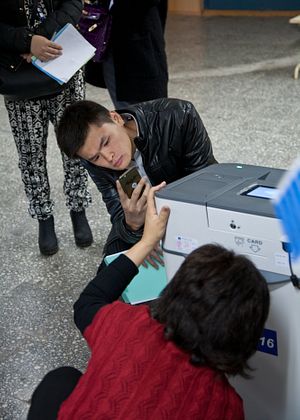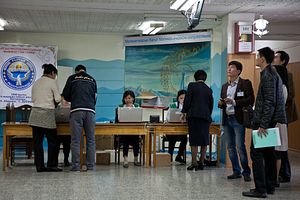Last week, Kyrgyzstan held elections to choose the entirely of its 120-member parliament — the Supreme Council or Jogorku Kengesh. Voters cast ballots for one of 14 parties running; according to preliminary results, six parties cleared the threshold to enter the next parliament. Official results won’t be released until October 24, but the election has been widely hailed as a success by both Western observers and observers from the Commonwealth of Independent States. In a region better known for autocrats and rubber-stamp parliaments elected in predetermined polls, Kyrgyzstan’s accomplishment stands out.
The OSCE applauded the election’s “lively campaign” and commented that voting was assessed positively at 95 percent of the polling stations observed. One of the OSCE’s main criticisms of the election, however, was related to the process: namely the biometric registration mandated in order for citizens to vote.
Photographer Tim Scott was in Bishkek on election day.













































